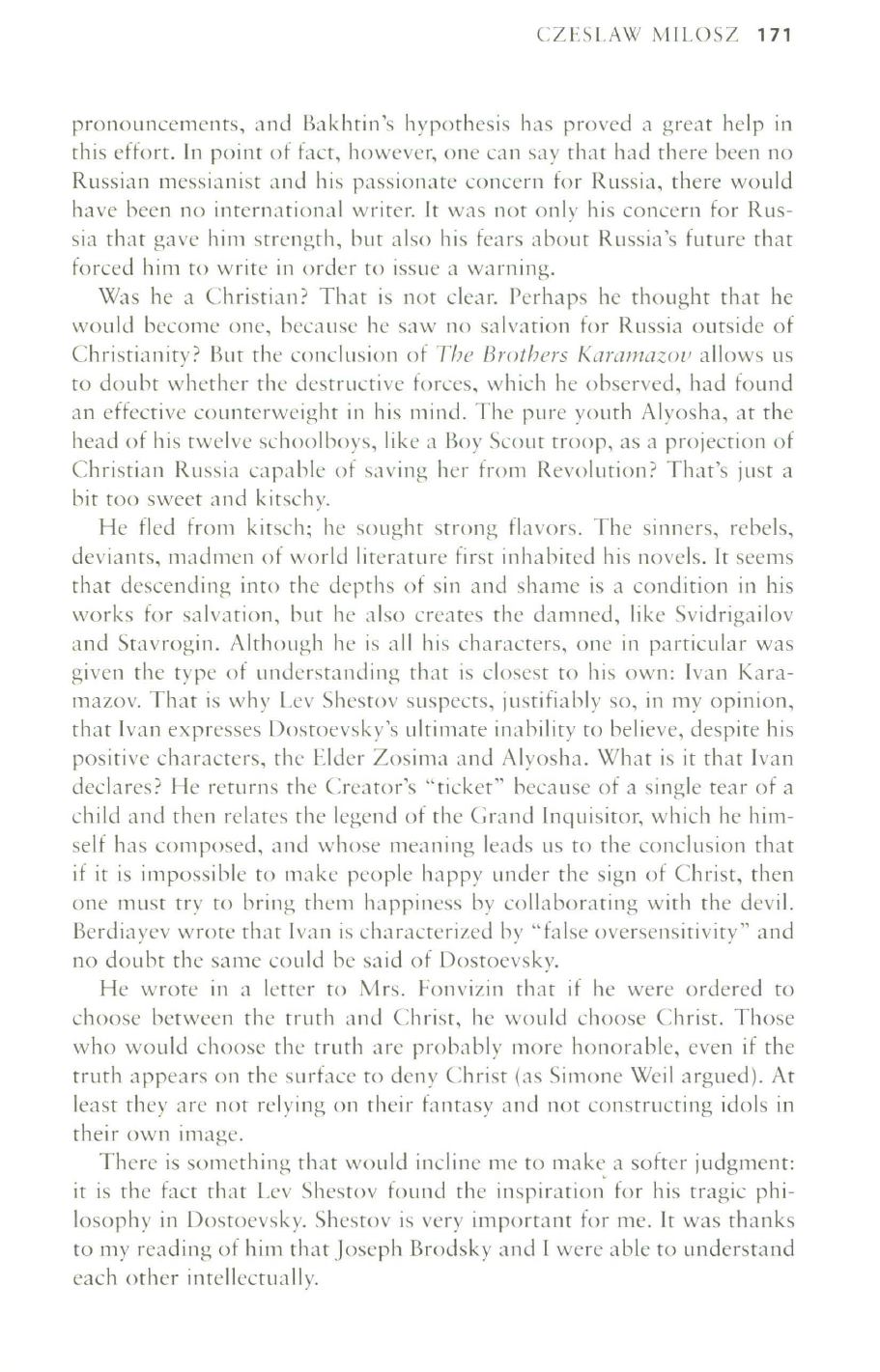
CZESLAW MILOSZ
171
pronouncements, and Bakhtin's hypothesis has proved a great help in
this effort. In point of fact, however, one can say that had there been no
Russian messianist and his passionate concern for Russia, there would
have been no international writer. It was not only his concern for Rus–
sia that gave him strength, but also his fears about Russia's future that
forced him
to
write in order
to
issue a warning.
Was he a Christian? That is not clear. Perhaps he thought that he
would become one, because he saw no salvation for Russia outside of
Christianity? But the conclusion of
The Brothers Karamazol'
allows us
to doubt whether the destructive forces, which he observed, had found
an effective counterweight in his mind. The pure youth Alyosha, at the
head of his twelve schoolboys, like a Boy Scout troop, as a projection of
Christian Russia capable of saving her from Revolution? That's just a
bit too sweet and kitschy.
He fled from kitsch; he sought strong flavors. The sinners, rebels,
deviants, madmen of world literature first inhabited his novels.
It
seems
that descending into the depths of sin and shame is a condition in his
works for salvation, but he also creates the damned, like Svidrigailov
and Stavrogin. Although he is all his characters, one in particular was
given the type of understanding that is closest to his own: Ivan Kara–
mazov. That is why Lev Shestov suspects, justifiably so, in my opinion,
that Ivan expresses Dostoevsky'S ultimate inability to believe, despite his
positive characters, the Elder Zosima and Alyosha. What is it that Ivan
declares? He returns the Creator's "ticket" because of a single tear of a
child and then relates the legend of the Grand Inquisitor, which he him–
self has composed, and whose meaning leads us to the conclusion that
if it is impossible
to
make people happy under the sign of Christ, then
one must try to bring them happiness by collaborating with the devil.
Berdiayev wrote that Ivan is characterized by "false oversensitivity" and
no dou bt the sa me could be sa id of Dostoevsky.
He wrote in a letter to Mrs. fonvizin that if he were ordered
to
choose between the truth and Christ, he would choose Christ. Those
who would choose the truth are probably more honorable, even if the
truth appears on the surface to deny Christ (as Simone Weil argued). At
least they are not relying on their fantasy and not constructing idols in
their own image.
There is something that would incline me
to
make a softer judgment:
it is the fact that Lev Shestov found the inspiration" for his tragic phi–
losophy in Dostoevsky. Shestov is very important for me.
It
was thanks
to
my reading of him that Joseph Brodsky and I were able
to
understand
each other intellectually.


